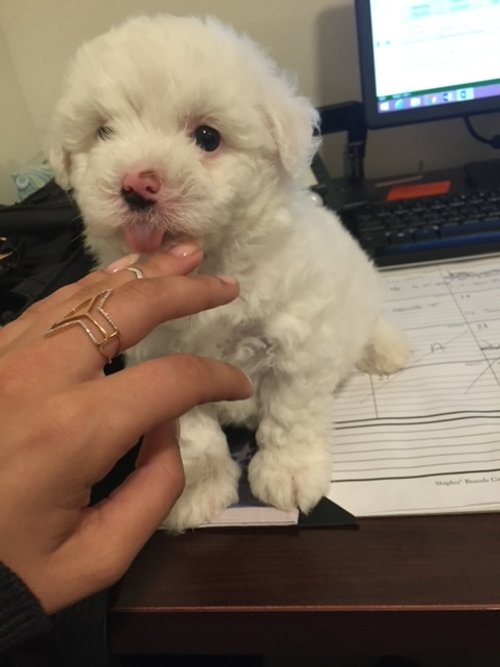How living with a reactive dog helped my mental health
Part of our mission as a company is to spread awareness about how dogs can improve human mental health. There is also more nuance that goes with living with a dog and like anything else a flip-side exists. This blog post digs deeper into the full spectrum of living with a reactive dog and how ultimately not only her positive traits made me a better person but also the less desirable ones.
Dogs are living, breathing, and emotional creatures. They can exhibit behaviors that negatively impact us and increase our anxiety or stress levels. For example —a dog who has separation anxiety, or a dog that displays aggressive behaviors, or a dog that exhibits reactivity may put strain on our mental health.
The truth is that, I, the founder of Cloud Doodles and the person who wants to spread the message of the positive impact dogs can have on us has been living with a reactive dog for the past 8 years. I want to also tell this part of the story, which involves a rollercoaster of emotions, but also helped me grow emotionally.
How can you deny this adorable fluffy potato?!?!
I adopted Duchess when she was 8 weeks old. She came to me as a sleepy, playful, and cuddly puppy who I would take around with me to appointments with people experiencing homelessness. My hope for her was that she would become a therapy dog and she would be my social work companion and bring joy to my clients. At the time I thought all dogs could be therapy dogs because why not? As she grew into her teenage self, some scary behaviors started to develop. She would growl at strangers, at anything with wheels, at my friends and family who would come through the door, kids walking through the neighborhood, other dogs, people who would come close to pet her. The growling then graduated to snapping and even biting on occasion. I was shocked and devastated. Her behaviors would cause me such anxiety every time someone were to come over or even taking her out for a walk. One day out of nowhere she attacked someone who was working in our house and I decided I needed help. I found a behavioral specialist who came twice a week every week for several months to help curve her behavior. My dreams of her becoming a therapy dog were long gone. Instead of helping others she was scaring them.
This behaviorist I hired was basically a dog social worker. He explained to me the nuances of dog personalities and behaviors and how similar the are to us. Using positive reinforcement and relational strategies that I practiced everyday there was some improvement. More importantly I started to really learn Duchess, what drives her, her emotional landscapes, her triggers, and her greatest pleasures. Through observance, patience, love, and tips I learned from the behaviorist, I was able to implement ways of helping Duchess through her reactivity and also helping myself in the process.
It was easy to get mad at her and blame her for her outbursts, but realistically her reactivity was never random and often I realized it was a consequence of how human beings are conditioned to think and behave toward dogs.
Duchess looks like a small, adorable teddy bear, which leads many people to treat her as such— a stuffed toy. A lot of what I had to do to help her was to set boundaries for her and act as her guardian. For example, never letting people come up to pet her while she was on leash or while we were in motion. Never letting children I didn’t know come up to her. Always creating a safe space for her to meet other dogs, which for us meant in an outdoor park and off leash so she could have freedom and space to meet the dog at her own pace. When people came over, I needed to instruct them to let her smell their feet and not try to pet her (I used treats at their feet at the beginning so she had positive associations with this). I always knew the door was a source of stress for her so I would always pick her up when people walked in and out of our front door who she had already met. These are some tactics we had established that worked for her and myself (every dog and every human is different).
As the years went on our trust and bond strengthened through this experience. We became each other’s protectors in different ways. I learned to empathize with dogs and became aware of how much the general public lacks education about interacting with dogs. She helped me become more open, more patient, and more empathetic— all things that has improved my mental health overall.
These days, Duchess is retiring into our simple and tranquil country side, Italian lifestyle. She is aging gracefully and calmly. It seems many over her reactivity has subsided. Maybe it’s the Italy vibes or maybe it’s all the years of building a strong and secure bond that has given us both a sense of peace and safety.



